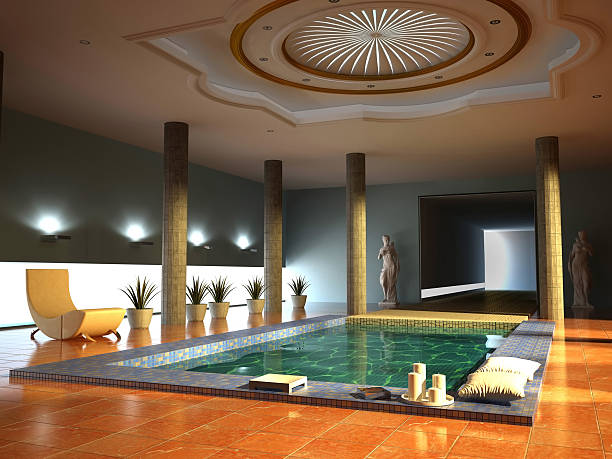The Allure of Luxury Brands: A Deep Dive into Opulence
Introduction to Luxury Brands
Luxury brands have always captivated the world with their promise of superior quality, exquisite craftsmanship, and exclusivity. They symbolize a world of opulence, where the finest materials and the most skilled artisans come together to create products that are not just items of use but works of art. From fashion to automobiles, and watches to jewelry, luxury brands set the benchmark for excellence and desirability.
The History of Luxury Brands
The concept of luxury brands can be traced back to ancient civilizations where rulers and the elite adorned themselves with the finest garments and jewelry. In ancient Egypt, pharaohs wore gold and precious stones, symbolizing their divine status. Similarly, in Rome and Greece, luxurious items were a mark of power and prestige.
The modern luxury brand as we know it began to take shape during the Renaissance in Europe. Families like the Medici in Florence and the royal courts of France and England became patrons of the finest artisans. The Industrial Revolution further propelled the luxury market by making high-quality goods more accessible to the wealthy bourgeoisie.
Defining Luxury Brands
Luxury brands are often defined by several key characteristics: superior quality, high price, rarity, and a rich heritage. The quality of materials and the craftsmanship involved in creating luxury products set them apart from mass-market items. These products often come with a hefty price tag, reflecting their exclusivity and the status they confer upon their owners.
Rarity is another hallmark of luxury brands. Limited edition releases and exclusive collections ensure that luxury items remain scarce and highly coveted. Heritage plays a crucial role as well, with many luxury brands boasting a long history and tradition that adds to their mystique.
The Psychology of Luxury
The appeal of luxury brands goes beyond the tangible product. It is deeply rooted in psychology and the human desire for status and recognition. Owning a luxury item is often seen as a symbol of success and achievement. It provides a sense of belonging to an exclusive club that is out of reach for most people.
Luxury brands also tap into the emotional aspect of consumer behavior. The experience of buying and owning a luxury product is designed to be memorable and special. From the opulent store interiors to the personalized customer service, every aspect is crafted to make the consumer feel valued and important.
Iconic Luxury Brands
Several brands have become synonymous with luxury due to their long-standing reputation for excellence. Names like Louis Vuitton, Chanel, Rolex, and Ferrari evoke images of sophistication and exclusivity. These brands have mastered the art of maintaining their allure through constant innovation while staying true to their heritage.
Louis Vuitton, for instance, has been a symbol of luxury travel since the 19th century. Its iconic monogram and high-quality trunks and bags have made it a favorite among the elite. Chanel, founded by Coco Chanel, revolutionized women’s fashion with its elegant yet practical designs. Rolex, with its precision engineering, has set the standard for luxury watches, while Ferrari’s sleek and powerful cars represent the pinnacle of automotive luxury.
The Role of Marketing in Luxury Brands
Marketing plays a pivotal role in maintaining the allure of luxury brands. Unlike mass-market brands, luxury brands focus on creating a sense of exclusivity and desirability. This is achieved through a combination of scarcity, storytelling, and experiential marketing.
Scarcity is created through limited editions and exclusive collections. By making their products hard to obtain, luxury brands increase their desirability. Storytelling involves creating a narrative around the brand’s heritage, craftsmanship, and values. This narrative is communicated through advertising, public relations, and brand events.
Experiential marketing involves creating unique and memorable experiences for customers. This can include personalized shopping experiences, exclusive events, and collaborations with artists and designers. The goal is to create an emotional connection between the brand and the consumer.
The Digital Age and Luxury Brands
The advent of the digital age has posed both challenges and opportunities for luxury brands. On one hand, the internet has democratized information, making it harder for brands to maintain their aura of exclusivity. On the other hand, digital platforms offer new ways to engage with consumers and tell the brand’s story.
Many luxury brands have embraced digital marketing, using social media, e-commerce, and digital advertising to reach a wider audience. Social media platforms like Instagram and Facebook allow brands to showcase their products and engage with consumers in real-time. E-commerce has made it possible for luxury brands to reach customers in markets where they do not have a physical presence.
However, maintaining the exclusivity and prestige of the brand in a digital world requires a delicate balance. Brands must be careful not to dilute their image while expanding their reach. This often involves creating exclusive online experiences and limited-edition digital releases.
Sustainability and Luxury Brands
Sustainability has become a key concern for consumers, and luxury brands are no exception. Many luxury brands are taking steps to ensure that their products are made in an environmentally and socially responsible manner. This includes using sustainable materials, ethical sourcing, and reducing carbon emissions.
Brands like Gucci and Stella McCartney have been at the forefront of the sustainability movement in the luxury industry. Gucci has committed to becoming entirely carbon neutral and uses sustainable materials in its products. Stella McCartney has long been known for its commitment to cruelty-free and eco-friendly fashion.
Sustainability in luxury is not just about environmental impact. It also involves ensuring fair wages and working conditions for artisans and workers in the supply chain. Many luxury brands are now emphasizing transparency and ethical practices as part of their brand values.
The Future of Luxury Brands
The luxury industry is constantly evolving, and several trends are shaping its future. Personalization is becoming increasingly important, with consumers seeking products that reflect their individual tastes and preferences. This has led to a rise in bespoke and made-to-order services.
The rise of the experience economy is another trend impacting luxury brands. Consumers are increasingly valuing experiences over possessions. This has led luxury brands to focus on creating unique and memorable experiences, whether through exclusive events, travel experiences, or personalized services.
The integration of technology is also set to play a major role in the future of luxury brands. From virtual reality showrooms to AI-powered personalization, technology offers new ways to enhance the customer experience and streamline operations.
Conclusion
Luxury brands continue to captivate and inspire with their promise of quality, craftsmanship, and exclusivity. They represent the pinnacle of human creativity and innovation, offering products that are not just items of use but symbols of status and achievement. As the world changes, luxury brands are evolving to meet new challenges and opportunities, ensuring that their allure remains as strong as ever.
Whether through embracing sustainability, harnessing digital platforms, or creating unforgettable experiences, luxury brands are finding new ways to connect with consumers and maintain their prestigious image. In a world where mass production and fast fashion dominate, luxury brands stand as a testament to the enduring appeal of quality, artistry, and exclusivity.


.jpg)

